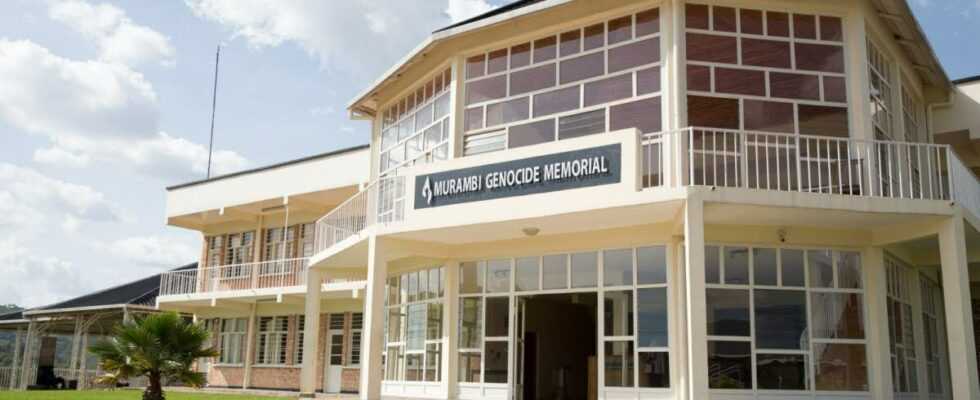He is the highest official ever tried in France for the genocide of the Tutsi in Rwanda in 1994: twenty-eight years later, the trial of the former Rwandan prefect Laurent Bucyibaruta opens Monday before the Paris Assize Court.
This is the fourth case tried by France for crimes related to the genocide which killed at least 800,000 people in 100 days in Rwanda, mainly from the Tutsi minority, but also from moderate Hutus.
The prefect would have faced life imprisonment
After a military officer, two mayors and a driver, Laurent Bucyibaruta, a refugee in France since 1997, is the one who administratively had the highest rank.
The former prefect of Gikongoro (south), one of the regions where the killings were the most violent, is accused of having organized or participated in several meetings during which massacres were planned, in particular by encouraging the regrouping of Tutsi and their extermination.
The former official, under judicial supervision, faces life imprisonment at age 78 for genocide, complicity in genocide and complicity in crimes against humanity.
Laurent Bucyibaruta “has disputed these accusations from the start”, declared his lawyers, MMare Jean-Marie Biju-Duval, Joachim Levy and Ghislain Mabanga Monga Mabanga, who “will plead for acquittal”.
Hundreds of witnesses interviewed
The trial, scheduled to last ten weeks, is due to open on Monday afternoon with the examination of defense submissions requesting the cancellation of the proceedings initiated twenty-two years ago. If it does not grant this request, the Assize Court may begin to examine the merits of the case.
A hundred witnesses must be heard, coming from Rwanda or by videoconference. The schedule has been adjusted taking into account the state of health of the accused, and the hearings will in principle be limited to seven hours a day.
“We run behind time. All we hope is that it will not be delayed any longer, that he will be brave enough to listen to what is said and be confronted “with the accusations, underlines Etienne Nsanzimana, president of Ibuka France, an association of survivors. .
The investigation links the ex-prefect to six main scenes of massacres, which left tens of thousands dead.
“His defense is to say ‘I couldn’t do anything, I was overwhelmed’. But he was prefect, therefore responsible, ”said Alain Gauthier, president of the Collective of Civil Parties for Rwanda (CPCR).
“He was the one who had all the power over this territory”
A civil servant for nearly thirty years at the time of the events, a career of exceptional longevity, Laurent Bucyibaruta was for the prosecution “a man experienced in the exercise of power”.
“It’s not the subordinate who can pretend he didn’t know what was going on. It is inaudible, unbearable for the victims”, tackle Mand Rachel Lindon, lawyer for civil party NGOs and a Rwandan whose family was massacred in a church.
“He was the incarnation, in this prefecture, of national power, it was he who had all the power in this territory”, adds Mand Emmanuel Daoud, lawyer for the International Federation for Human Rights (FIDH), at the origin of the complaint in 2000.
One of the bloodiest massacres of the genocide
In Gikongoro prefecture, as elsewhere in Rwanda, the killings began shortly after the attack on Hutu President Juvenal Habyarimana on April 6, 1994.
The technical school under construction in Murambi, in the commune of Nyamagabe, is the scene of the most appalling massacre in the region, and one of the bloodiest of the genocide in this small African country. The site has since become a memorial.
On April 21, 1994 around 3 am, tens of thousands of Tutsi refugees, gathered on the site on the initiative of the prefect who guaranteed them “protection”, were surrounded and killed. A handful survived, fleeing or hiding among the corpses. The killings continue during the day in two neighboring parishes, where Tutsi had hoped to gain a sanctuary.
Laurent Bucyibaruta was also dismissed for his responsibility in the massacre of around 90 Tutsi students at the Marie Merci school in Kibeho on May 7, 1994, and the execution of Tutsi prisoners, including three priests, at Gikongoro prison, charges which he also denies.
On the other hand, he benefited from a dismissal concerning the murder of a Rwandan gendarme and the rapes of Tutsi women by militiamen.
The International Criminal Tribunal for Rwanda (ICTR) had for a time demanded Laurent Bucyibaruta, but he finally relinquished jurisdiction in favor of the French courts.
